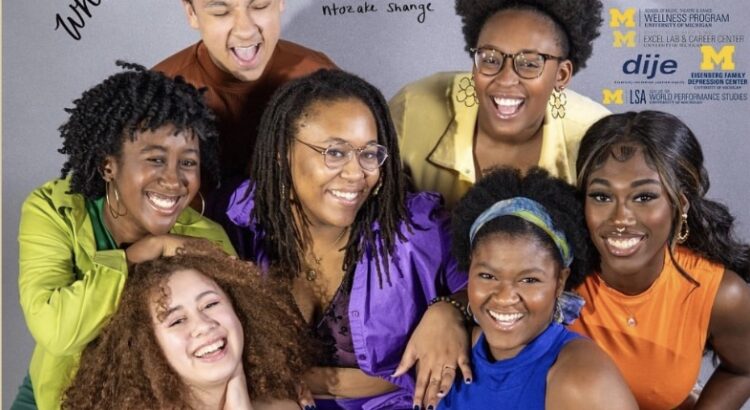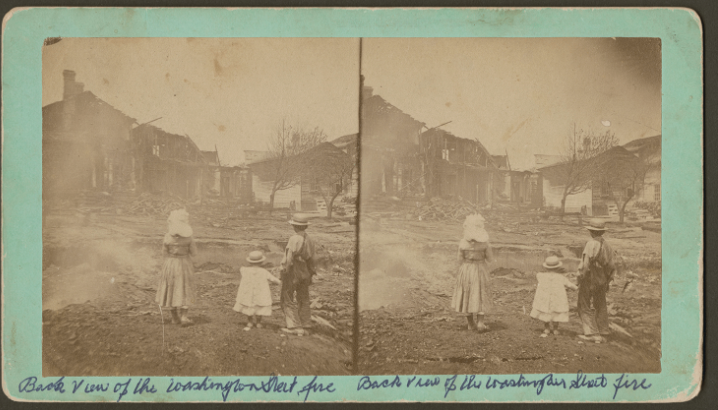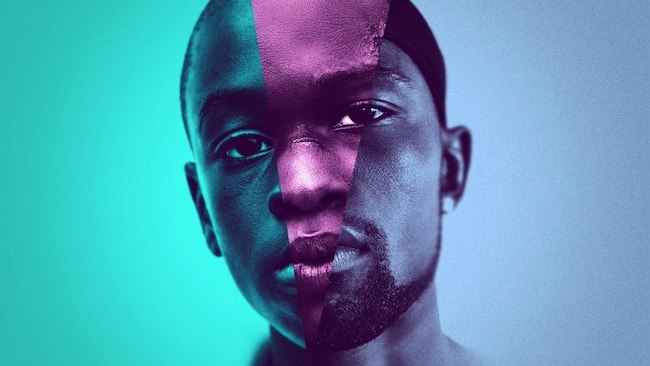Basement Arts presents their first show of the season: For Colored Girls Who’ve Considered Suicide / When The Rainbow’s Enuf by Ntozake Shange. The 1976 piece is presented as a choreopoem, a unique collection of spoken poems that intertwines staging and fluid movement. Director Sarah Oguntomilade works alongside choreographer Gilayah McIntosh to navigate Ntozake’s lyrical prose to create a piece illuminating the complexities of Black womanhood, friendship, and identity with unwavering grace and power.
In the show, each character is depicted as a color of the rainbow with the addition of brown. They perform some poems alone, but in other moments come together to deliver a unified story, creating a mural of emotions. Characters were acutely aware of one another, offering solidarity when some were delivering heavy-hearted monologues and experiencing saturated joy together for others. The performers breathe life into the individuality of their roles, showcasing a kaleidoscope of personalities that are both vivid and distinct, yet reminiscent of Ntozake’s personal experiences and emotions. Oguntomilade clearly holds a deep understanding of theater and poetry, as her direction was fluid and honest, capturing the essence of each moment poetically and dramatically. Accompanied by McIntosh’s seamlessly exciting choreography, the piece was aesthetically magnificent.
The authenticity of the choreopoem form shines through Ntozake’s meticulously crafted words, breathing life into the performance while speaking radiant visions of her experiences to the audience. The ensemble expertly navigated exhilarating highs and heartbreaking lows with unwavering conviction, leaving the audience both beaming with love and holding back a rush of tears. The poems fearlessly take on topics such as abuse, sex, and emotional trauma—it is a show to be emotionally prepared for while inviting audiences to confront the complexities of the African-American experience with unflinching honesty and empathy. The show humbly forms a mosaic of poetic brilliance that lingers long after exiting the theater.
For Colored Girls Who’ve Considered Suicide / When The Rainbow’s Enuf is a deeply touching piece about the resilience, bravery, friendship, strength, and beauty of African-American women, and went out last week with roaring success. Basement Arts will perform two more shows during the Winter season: Collective Rage: A Play in 5 Betties directed by Brynn Aaronson and Falsettos directed by Naomi Parr. Auditions and performance dates are posted on @basement_arts on Instagram.
More about Ntozake Shange and her legacy here.
Feb 2, 11pm. Image thanks to Basement Arts. Performed in the Newman Studio on North Campus.







